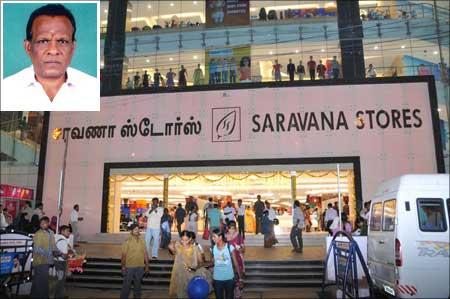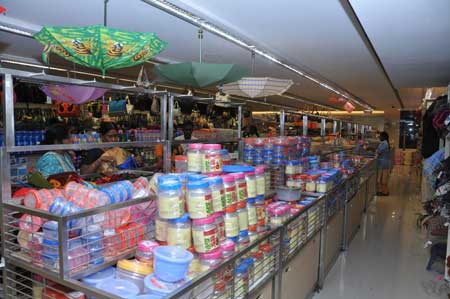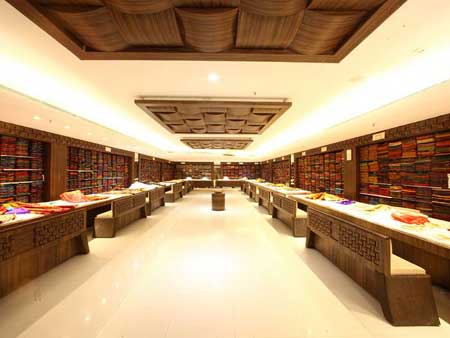 | « Back to article | Print this article |
'We will all be slaves to MNCs,' says Saravana Stores founder
Saravana Stores is the biggest family-owned retailer in India. The retail major is into utensils, clothes, fast moving consumer goods (FMCG), gold, and home provisions.
Its tag line is 'the cheapest prices in town' and it has managed to maintain this since 1970 when the family started with a single stainless steel shop on Ranganathan Street, T Nagar, in Chennai.
Now Saravana Stores has 61 outlets. Kishore Biyani, founder of the Future Group that manages Big Bazaar, has said in his autobiography that his inspiration to start his retail venture was Saravana Stores.
S Rajarathinam is the founder-owner of this retailing giant. We asked him about his opinion on the government's decision to allow 51 per cent foreign direct investment in India's multi-brand retail trade and 100 per cent FDI in single-brand retail trade.
Click NEXT to read on . . .
'We will all be slaves to MNCs,' says Saravana Stores founder
This is what he had to say:
"It is the East India Company all over again. What the government is doing in the name of liberalisation is not good for the country. It is bad for local businessmen and also for the people.
"Multinational companies have deep pockets. They can sell at a loss till other local businesses shut down and then they will increase prices and make a killing. Whatever we earn we plough back into the country.
"We buy land or goods; we keep them here. MNCs will be taking our money out of the country once they start making profits. They always employ devious means."
Click NEXT to read on . . .
'We will all be slaves to MNCs,' says Saravana Stores founder
"Have you seen their rice grains? They are perfect and they give a huge return. But the only problem is their seeds cannot be used a second time.
"Our farmers are used to keeping a part of their produce -- the best part -- as seed for the next crop. But you cannot do that now. You have to go to them for every season. They control the price of their seed. We are their mercy.
"In retailing, they will enter the food chain and create a monopoly. They will go to the farmer and offer a higher rate than the wholesalers now. They will not allow rice millers to buy paddy as they will offer higher rates.
"Once they have bought the entire paddy in the market they can sell the rice at any price. There will be no one to challenge them as no one else will have the rice."
Click NEXT to read on . . .
'We will all be slaves to MNCs,' says Saravana Stores founder
"We sell the cheapest goods in town simply by buying at a lower price than others. We buy in bulk and we buy with hard cash. So we get a better bargain than a small shop-owner.
"But the multinationals have more cash than us. They will buy in bigger bulk than us and therefore at lower prices. They can under-sell us for years till we are forced to close down.
"Then they will hire our workers and we will all be slaves to them.
"If our people bought Indian goods only -- as in the time of the Swadeshi movement -- then we can survive. But you know the truth. Anything that is made in the West is considered better than what is produced here. The 'finish' of their products is better than ours, so people assume that the products themselves are better."
Click NEXT to read on . . .
'We will all be slaves to MNCs,' says Saravana Stores founder
"It's actually a colonial mentality that we consider them better than us. Most of the goods they will sell will be made in China. The Chinese are flooding our markets with cheap goods even now. Currently, these goods are smuggled across the border: henceforth, they will enter legally.
"European and American MNCs get most of their low-end good manufactured in China.
"Now for any product there is a manufacturer, a wholesaler and then the retailer. The MNCs will destroy this chain. They go straight to the manufacturer and place huge orders with huge advances. The money that they give in advance lets them dictate the price at which they will buy.
"The wholesaler and the retailer who are now doing business will be out of business and out of work. We will all end up working for them."




